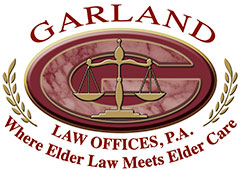If you are new to family caregiving, looking for long-term care for yourself, or generally curious about the Medicaid process, you may feel a bit overwhelmed. Medicaid and Medicare are commonly misunderstood and are both fairly complex. Understanding the difference between the two is the first step to navigating the Medicaid maze.
Let’s start with Medicare.
Medicare is a federal health insurance program. This means that if you are over 65 years of age, you automatically become eligible for Medicare through the U.S. government. In addition to the age requirement, others who qualify are those who are disabled, or those with End-Stage Renel Disease, also known as ESRD, which is the case of permanent kidney failure requiring dialysis or a kidney transplant. If you are not over 65 years of age, but you are either disabled or suffering from ESRD, you are not automatically eligible, but you can fill out an application for Medicare to become considered.
Medicare coverage offers different programs for everyone to choose from.
These programs are categorized into four parts.
- Part A helps cover services such as in-patient hospital care, hospice, and home health care.
- Part B helps cover outpatient care, medical equipment, and preventative services.
- Part C, also know as the Medicare Advantage Plan, is a bundled package alternative, which usually includes parts A, B, and D. The main benefit to this plan is the coverage of extra services, such as vision, dental, and hearing.
- Finally, Part D offers prescription drug coverage. This includes shots ad vaccines and protects you against rising drug prices in the future.
What is Medicaid?
Medicaid is a program that is jointly operated by both federal and state governments. States individually draw out their own plans which are then approved by the federal government. This means that coverage can vary depending on where you live. To qualify for Medicaid in any state, you must be a resident of that state and a U.S. citizen. Those eligible include anyone 65 years of age or older; people under the age of 19; pregnant women; adults without children (varying according to state); or disabled persons.
Medicaid covers a variety of services which include:
- doctor visits
- hospital stays
- long-term services and supports
- preventative care
- prenatal and maternity care
- prescription drugs
- vision and dental care (for children)
What to remember:
Medicare is a federally funded program and is not offered to everyone. Medicare also does not offer long-term care coverage, so if you or a loved one is seeking caregiving resources, you will be paying more money out-of-pocket with Medicare. Medicare is considered a social safety net, and should not be used solely for those in need of extra help.
Medicaid is jointly operated by both federal and state governments, and coverage varies depending on the state’s guidelines. Medicaid is offered to people with limited income and resources. In New Jersey, you must have a maximum yearly income of $17,000. Generally, Medicaid offers more services, and to more people, than Medicare. This means that the application process can be complex and confusing.
Seek professional help.
If you are looking for long-term care for yourself or someone else, it is best to seek professional assistance before applying to ensure you preserve your assets. Here at Garland Law Offices, we provide legal assistance to help you and your family through this difficult time, because navigating through a medical and financial crisis should not be done on your own.

One thought on “Medicaid Vs. Medicare”
Comments are closed.